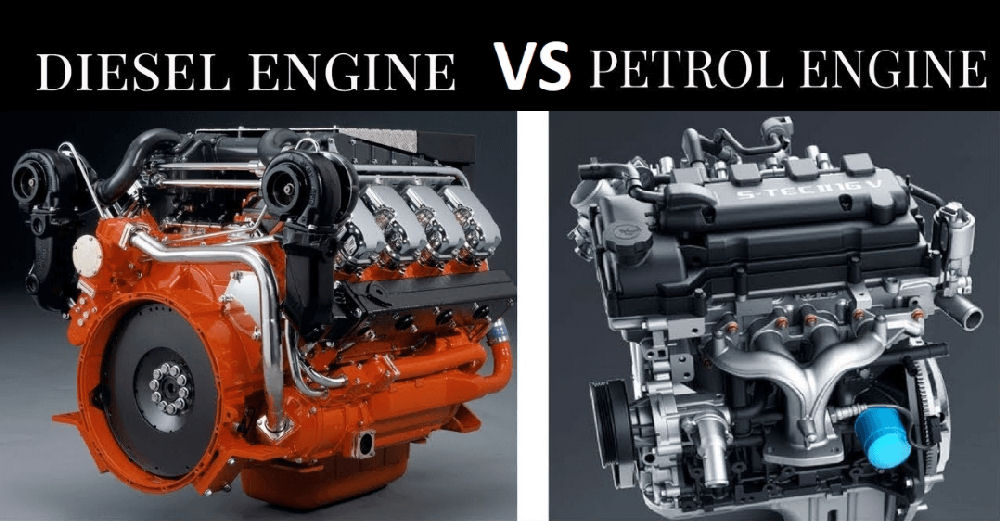The debate between the diesel and petrol engines is an old one. It can be argued that both have their pros and cons but a serious case can be made to prove that diesel engines have few points the petrol ones.
There is a common misconception that diesel engines are heavier and thus consume more fuel than their petrol counterparts. However, the truth is very far from this notion. Although the price of diesel per gallon is higher than per gallon of petrol, diesel engines provide much better mileage. The high density of diesel allows the extraction of more energy as compared to the same volume of petrol. For heavy-duty transportation, diesel engines become an even better choice.

The secret is the very high temperature and pressure in the diesel engine which allows much better combustion and hence much less release of CO2 than the petrol ones where combustion is partial at best. This phenomenon is proved by the combustion ratio of diesel and petrol engines where diesel boasts a much higher ratio.
Being fuel efficient may mean that they would have compromised on the power and torque side. On the contrary, diesel engines are notorious is providing high torques. No wonder almost all heavy-duty vehicles use diesel engines. Whether it’s towing or hauling, diesel engines have a clear advantage over petrol ones. The higher density of diesel engines provide much better acceleration and pull power to haul heavy loads overall kind of terrains.
Diesel engines are reliable. The fact that almost every demanding job uses diesel engines whether it’s in the industrial, agriculture or some other sector stands as proof of the reliability the diesel engines offer. Off-road applications exclusively rely on diesel engines for all the heavy work.
It has been noted that diesel engines are durable and can work for extensive periods. The internal components are designed to stand wear and tear. The resulting maintenance costs make them much more reliable and attractive to use.
The ills of climate change are all around us. Decades of unrestrained human activity and the use of fossil fuels have led the planet to the brink of collapse. Though fossil fuels can not be replaced overnight, options with better output and a lesser environmental footprint can be adopted in the meantime. This is where the diesel engine comes in. Although diesel engines were known for heavy emissions, the new breed of engines has turned the tables. Now, diesel engines come with emission control technologies. DPF and SCR are most commonly used to lessen the harmful impact of released hydrocarbons by limiting their amount.
Diesel engines come in a great variety and have the potential for aftermarket upgrades. Take the case of VW 2.0 TDi Engines. These popular engines are around for a long time and thanks to consistent improvement, their output keeps getting better and better. The older models had some faults, but thanks to new upgrades, the faults are not found any more.
Unlike petrol engines which are sensitive to the type of fuel used in them, diesel engines are adaptable. They can readily accept biodiesel, synthetic diesel et cetera. As said earlier, climate change due to fossil fuels is a major threat to the world but by using modern diesel engines with alternative fuel capacities, some progress can be made until more reliable solutions are discovered.
Ignition risks run high in petrol engines as compared to diesel engines. The reason is quite simple. The ignition mechanism of diesel engines is less prone to accidental ignitions. Moreover, diesel is less volatile than petrol which provides safety from fire hazards.
For off-roading, diesel engines are unbeatable. The torque output is much higher than petrol engines which allows them to scale much more difficult and tricky terrain with relative ease. For heavy loads, high-torque diesel engines are paramount since they provide much better control over the vehicle with the necessary responsiveness to control the loaded vehicle at challenging terrain.
This additional power output makes them desirable for use at high altitudes. The low oxygen environment at high altitudes is not suitable for petrol engines while diesel engines can tackle them with relative ease.
In all, both engines have their plus points. It falls on the user to select one in light of their performance requirements.
